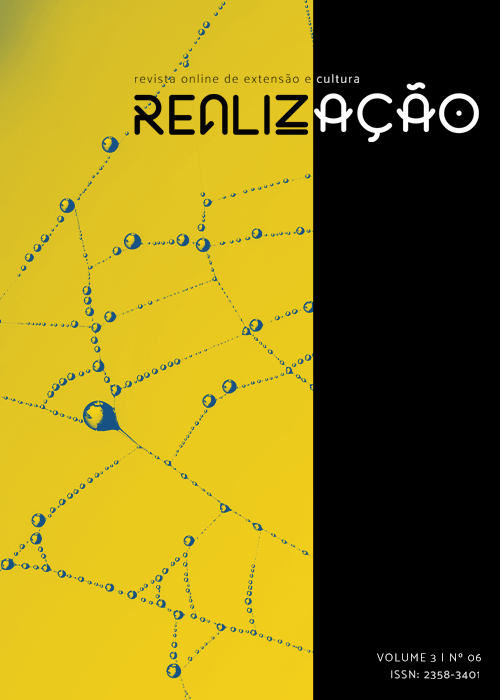UFGD Preparatory Course – the resumption of an extension project with great social impact
Keywords:
Preparatory course , ENEM , University entrance examAbstract
The extension project organized by the Office of the Vice-Rector for Extension and Culture (PROEX), called the UFGD Training Center, has two axes: Language training and Pre-University training. In this second axis, the subject of this work, two preparatory courses were offered, one for the National High School Exam (ENEM) and the other for the University Entrance Exam, aiming to serve students preferably from the Public School System, as a way of promoting equal access to Universities. In addition to increasing the chances of entering higher education, the program also aims to contribute to reducing dropout rates, since it promotes a leveling of basic knowledge that, if not assimilated, could lead the student to abandon the course. The courses were offered in two distinct modules. The ENEM module included classes taught in the form of exercise resolutions based on the models proposed by the National Institute of Studies and Educational Research Anísio Teixeira – INEP, which is responsible for administering the exam. In the Entrance Exam module, the content was covered based on the traditional national entrance exams. The ENEM preparatory course had 65 (sixty-five) applicants. The module had only 01 (one) dropout and granted 01 (one) scholarship to a student with special needs, in order to contribute to her psychosocial development, since she had a certain neurological disorder. The UFGD Entrance Exam module had 72 (seventy-two) applicants. The module had only 01 (one) dropout and granted 02 (two) scholarships to public school students.
Downloads
References
COSTA, G.L.M. O ensino médio no Brasil: desafios à matrícula e ao trabalho docente.Revista Brasileira de Estudos Pedagógicos, Brasília, v. 94, n. 236, p. 185-210, jan./abr. 2013.
MINISTÉRIO DA EDUCAÇÃO. Censo escolar da educação básica 2016 -Notas estatísticas.2016
MINISTÉRIO DA EDUCAÇÃO. O que é o Sisu. 2016
POLÍTICA NACIONAL DE EXTENSÃO, 2012.
REVISTA ÉPOCA.O ensino público no Brasil: ruim, desigual e estagnado. 2015.
SILVA, P.B.G. e. Prefácio. In: ANDRADE, R. M. T.; FONSECA, E. F. (orgs.) Aprovados: cursinho pré-vestibular e população negra. São Paulo: Selo Negro, 2002.
WHITAKERD.C.A. Da “invenção” do vestibular aos cursinhos populares: Um desafio para a Orientação Profissional. Revista Brasileira de Orientação Profissionaljul.-dez. v. 11, n. 2, p. 289-297, 2010.
Downloads
Published
How to Cite
Issue
Section
License
Copyright (c) 2016 Agleison Ramos Omido, Fabíola Renata Cavalheiro Caldas, Alessandra Leite de Oliveira, Rosilda Mara Mussury

This work is licensed under a Creative Commons Attribution-NonCommercial-ShareAlike 4.0 International License.
Autores que publicam nesta revista aceitam as normas de publicação, bem como, concordam com os seguintes termos:
(a) O Conselho Editorial se reserva ao direito de efetuar, nos originais, alterações da Língua portuguesa para se manter o padrão culto da língua, respeitando, porém, o estilo dos autores.
(b) Autores mantêm os direitos autorais e concedem à revista o direito de primeira publicação, com o trabalho simultaneamente licenciado sob a Creative Commons Atribuição-NãoComercial-CompartilhaIgual 4.0 Internacional que permite: Compartilhar — copiar e redistribuir o material em qualquer suporte ou formato e Adaptar — remixar, transformar, e criar a partir do material. A Creative Commons Atribuição-NãoComercial-CompartilhaIgual 4.0 Internacional considera os termos seguintes:
- Atribuição — Você deve dar o crédito apropriado, prover um link para a licença e indicar se mudanças foram feitas. Você deve fazê-lo em qualquer circunstância razoável, mas de nenhuma maneira que sugira que o licenciante apoia você ou o seu uso.
- NãoComercial — Você não pode usar o material para fins comerciais.
- CompartilhaIgual — Se você remixar, transformar, ou criar a partir do material, tem de distribuir as suas contribuições sob a mesma licença que o original.
- Sem restrições adicionais — Você não pode aplicar termos jurídicos ou medidas de caráter tecnológico que restrinjam legalmente outros de fazerem algo que a licença permita.


